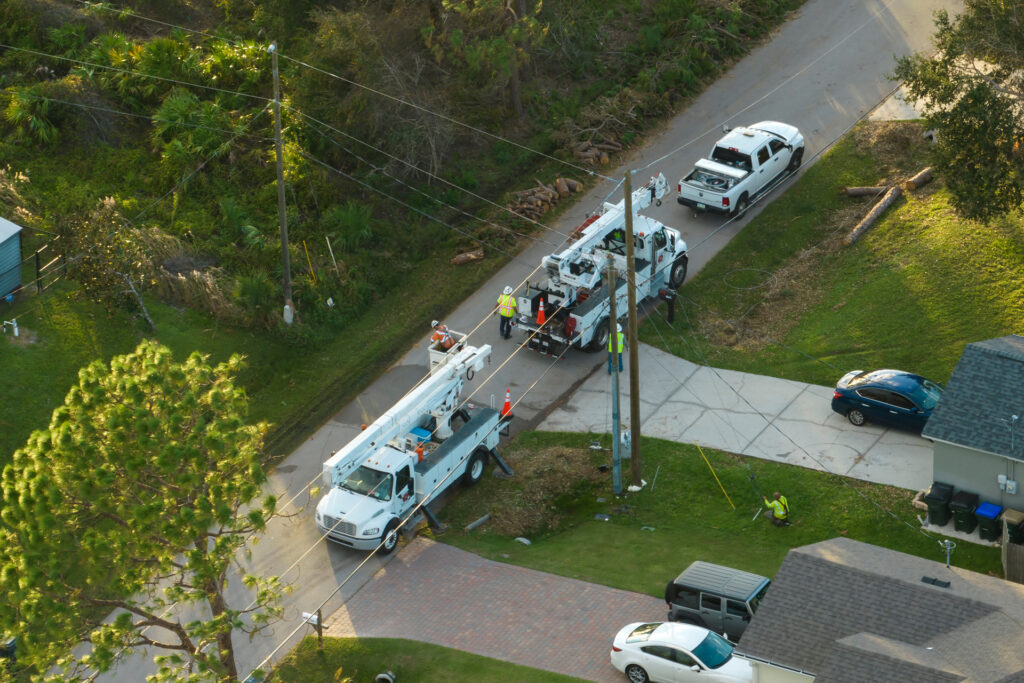Engine Room Perspectives on Contemporary Planning, Scheduling and Dispatch Processes
The Planner
In modern Utility planning and scheduling processes, the role of the Planner has specific implications which determine both what the Planner does, and what they don’t do. For instance, in many planning and scheduling processes, the Planner will not be the one who initiates work. Work may be initiated as a result of a customer request, a desire to implement a PM program, an outcome of a PM inspection, an equipment failure etc. etc.
At a very high level, the role of the Planner is to determine how to achieve the objective the initiator has given them. Therefore, a Planner may be asked to plan the repair of a piece of equipment, or to plan the installation of a new asset. As a function, planning can exist completely independently from scheduling. That means that a plan can be completed, put on a shelf and then scheduled at a later date.
The successful Planner will:
- Strive to understand the initiator’s objective in the work request.
- Develop a scope of work that accomplishes the objective.
- Consider the parts and materials required as part of the plan.
- In most companies, the Planner will start the procurement process to source parts that need to be ordered, and while they may create a list of readily available ‘in stock’ parts (the bill of materials), the Planner may not pull them out of stores.
- Consider how the objective will be accomplished and how the work will progress. Then, as a result, the requirements for specialized equipment, tools, and procedures.
- Consider the resources required to complete the work.
- Size of crew and manhours.
- Critical skills and competencies
- Consider other dependencies related to the scope or the anticipated approach to the work such as permit requirements, customer outage requirements, etc.
- After considering all the factors above, the Planner will put together a package of materials that will be passed on the person or crew who will execute the work package. This work package is the Planner’s work product. The best Planners produce work packages that are as simple as they can be, and as comprehensive as they need to be. Typical work packages may include:
- Drawings
- Descriptions of the scope of work
- Descriptions of the methodology and the logic behind the plan
- Any ‘kitted’ parts
- Relevant standards and/or procedures
- Documentation requirements (e.g. as-built or commissioning requirements).
It should also be stressed that having a Planner does not mean that the Planner is the only person who does planning or needs to have a plan. For instance, a good backhoe operator does not need to be told where to park their backhoe or where to put the dirt they dig out of the trench, that’s up to the operator to decide. What the Planner does is provide the information about the location, length, depth and width of the trench. Good Planners avoid ‘planning’ how trades people should apply their trades training.
Similarly, virtually all Foremen and Supervisors will mentally ‘plan’ things and there in no reason to engage a Planner to plan something that is straight forward for the Foreman to plan when they are on site talking with the crew. As a rule of thumb around best practice, whenever a Foreman or Supervisor will have to spend time to ‘figure out’ aspects of the plan, (chasing parts, drawings, specs etc.), they should enlist the Planner to do the planning, which in turn allows the Foreman to focus on working with the crew in the field. If the Foreman or crew can plan the job in a few minutes on their own, there is no reason to send the job to a Planner.
Planner Capabilities
Given the nature of the planning function, there are definite trends in the types of people who gravitate towards planning roles. Specifically, Planners tend to be:
- Trades Techs with extensive trades experience who have a desire to move off the tools into a role with less time in the field.
- Engineering Technicians who have formal training in the technical aspects of the profession.
- Regardless of the career path into the Planner roles, most successful Planners have the following characteristics.
- The ability to think systematically through the problem-solving phase of planning.
- The ability to communicate their plan to others (whether that’s in writing or verbally).
- Expertise in using the relevant business systems and tools (ERP, CMMS, Procurement).
- The ability to get plans finished. While this sounds obvious, many less successful Planners suffer from analysis paralysis and overthink plans or may be too easily distracted to get plans finished in a timely manner.
- The ability to let the ownership of the plan transfer to Operations team for execution.

The Scheduler
In the planning and scheduling process, the Scheduler’s function is to schedule the work in the calendar and to deal with other time dependent issu
Subscriber Access
Unlock Deeper Insights with The Engine Room
Join our community and gain exclusive access to our newsletter, full insights, thought leadership, and expert perspectives that shape our approach and principles. Dive deeper into the strategies that drive high-performing teams, leadership excellence, and operational success.
Sign up today to stay ahead with actionable knowledge designed to elevate your impact along with your organization and team.






